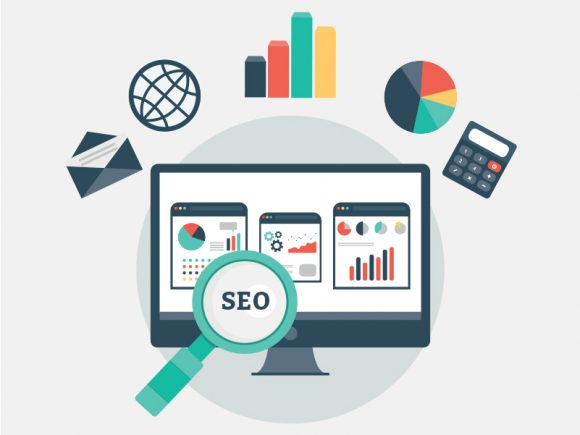Important SEO Tips for E-commerce That You Cannot Disregard

Nowadays, the online market has vastly grown. That means that there are more businesses competing in the online market than ever before. It has made the market not only highly competitive but also oversaturated. Becoming visible enough and reaching out to customers has become increasingly difficult, especially for new e-commerce businesses.
Despite all those facts, many e-commerce stores manage to thrive, grow and develop further. The simple answer is SEO (Search Engine Optimization). SEO is a cost-effective marketing strategy designed to help companies improve their visibility, awareness, exposure and credibility, among other things in the online world.

Related: 7 Best SEO Trends Gaining Popularity In 2019
What’s more, SEO has become rather mandatory than simply optional these days. The only way to cut through all the noise generated by other businesses and truly stand out is to be smart about it. With the right strategy in place, even new e-commerce businesses can become more visible than larger and more-developed competitors. With that in mind, here are a few important SEO tips for e-commerce that you cannot disregard.
Market research
No marketing strategy, no matter how effective on its own it might be, can succeed without information to back it up. The same goes for your ecommerce SEO efforts. If you want SEO to produce viable results, you must know how to work it in your favor.
Market research is there to help you acquire all the necessary information that will allow you to make more strategic decisions. That includes learning everything there is to know about your target audience, such as their preferences, demographics, expectations, needs, demands, purchasing decisions, behavior, and so on.
Aside from that, market research includes a thorough competitive analysis. You must know how your competitors operate, in order to find a way to outrun them. When you leverage information from the research and use it in your SEO strategy, it will become much easier to ensure that customers will notice you and that your store is able to stand out in a crowd of many.

Technical SEO
Your e-commerce store, i.e. your website, is the main point of sale for your business. In other words, customers will visit your website and conduct their research until they decide to make a purchase. Now, technical SEO caters to your website’s functionality and elements that affect customer experience on your store.
As you may already know, online consumers have certain expectations when it comes to browsing websites and if you’re unable to meet those expectations, then consumers will simply leave and choose a competitor to do business with. However, you need to focus on website functionality even before you launch your store on the market.
In other words, you need to include reliable e-commerce web development into the process of building your platform. That way, your website can be fast, responsive, secure, easy to navigate and user-friendly, among other things. The main reason that is important is that all of those factors influence customer experience and customer experience is a ranking signal for search engines.
On-page SEO
As mentioned before, your ecommerce website needs to be fast, responsive, safe, etc. so that it can provide customers with an exceptional experience. The next thing you should focus on is on-page SEO. On-page or on-site SEO is designed to help search engines index your store and its content properly.

Related: The Only Keyword Research Tools You Need
This is the part that improves your visibility online and gives both consumers and search engines context to what your website is all about. Therefore, here are a few on-page SEO activities you must take care of.
- Keyword research and implementation – Keywords are the foundation of any SEO activity. Keywords allow you to match your content with that of consumer intent. They also allow your pages to rank on search engines. That’s why it’s important to research relevant keywords and implement them on key points throughout your ecommerce store.
- Title Tags – Title tags are HTML elements that give titles to web pages. Titles are displayed on search results (SERPs) and they represent a clickable headline. The purpose of title tags is to give an accurate and to the point description of the content on the page. Title tags should include a keyword as well.
- Meta descriptions – Meta descriptions are yet another HTML element that briefly summarizes the web page. The optimal length for meta descriptions is between 50 and 160 characters. It gives both users and search engines context to your web page. In order to make it SEO-friendly, include a keyword as close to the beginning as you can.
- SEO-friendly URLs – Uniformed Resource Locators (URLs) are basically an address for your pages. An SEO-friendly URL helps consumers and search engines understand where the link will lead them to. As an example, an SEO-friendly URL looks like this: https://mywebsite.com/page/info.
Off-page SEO

Off-page or off-site SEO has little to do with your website and everything to do with what you do outside your e-commerce store. This includes activities that will build awareness for your store, generate exposure and improve your credibility as a business.
Content marketing has a major role to play here as it is considered the top ranking factors for search engines, such as Google. Content educates, informs and entertains customers, which means it provides them with real value. Here are a few off-page activities for your e-commerce store.
- Guest posting – Post content on relevant sources to boost your credibility and domain authority.
- Link building – Include inbound links to your store in the content you publish to generate more website traffic.
- Social media – Although social media signals don’t contribute directly to SEO, it’s still important when engaging your customers, building reputation, awareness and exposure. A good reputation on social media doesn’t go unnoticed by search engines.
- Content marketing – The content you provide to customers, such as videos, product descriptions, articles, etc. is your most important SEO activity. However, the content you create needs to be original, fresh and of top quality, in order for it to be a strong ranking signal.
SEO has become one of the most important marketing strategies for not just e-commerce stores but for any business, for that matter. Without SEO, the competition online may overshadow your store, thus preventing it from reaching out to customers and standing out in the crowd. That’s why you cannot disregard SEO if you wish to reach success in the market.

